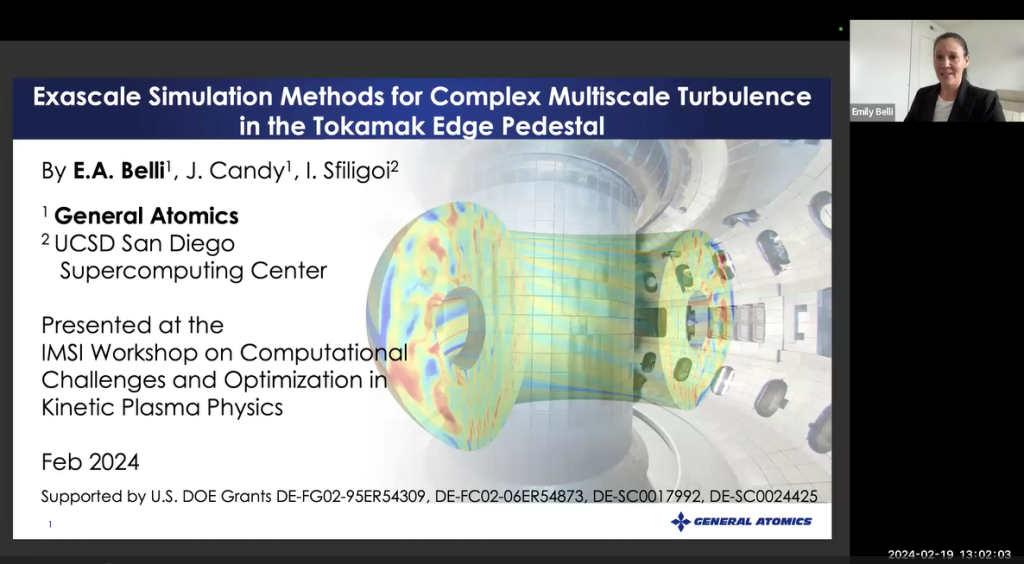Exascale Simulation Methods for Complex Multiscale Turbulence in the Tokamak Edge Pedestal
Presenter
February 19, 2024
Event: 51881
Abstract
Plasma confinement in tokamaks is limited by slow particle and energy losses due to turbulence, driven by unstable drift waves triggered by plasma inhomogeneities. Understanding the mechanisms that drive turbulence in burning plasmas is essential in designing next-generation fusion reactors like ITER with optimal confinement and fusion performance. While ion-scale turbulence in the tokamak core has been modeled extensively, gyrokinetic simulations of turbulent transport in the edge pedestal of high-confinement mode regimes are very challenging. In the pedestal, large gradients in density and temperature can drive multiple drift-wave instabilities across a broad range of scales, namely ion and electron scales that differ in size by nearly two orders of magnitude. Simulating this so-called "multiscale turbulence", which captures the complex interaction between the slow, large scale motion of the hydrogenic ions and the fast, small-scale motion of the electrons, requires both leadership-scale computing resources and advanced numerical algorithms. Recently, a first analysis of the spectral transition of multiscale turbulence in pedestal-like regimes was demonstrated. The simulations were enabled using advances in numerical algorithms for Eulerian gyrokinetic simulations that use a spatial discretization and array distribution scheme that is spectral/pseudospectral in four of the five phase space dimensions and targets scalability on next-generation, exascale HPC systems that use multicore and GPU-accelerated hardware. Performance optimizations for both compute and communication that target capability-computing simulations on Frontier, the world's first exascale system, will be introduced. Essential components include highly leveraging GPU offloading and GPU-aware MPI, hipFFT libraries that enhance efficiency for very large numbers of radial/binormal wavenumbers, and adaptive time-stepping that gives fast solution for systems with impulse and oscillatory behavior. * Work supported by US DOE Grants DE-FG02-95ER54309, DE-FC02-06ER54873, DE-SC0017992, and DE-SC0024425.
